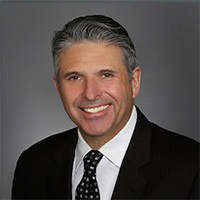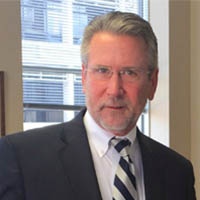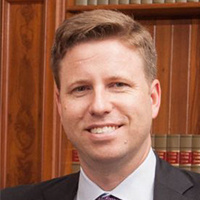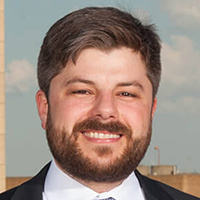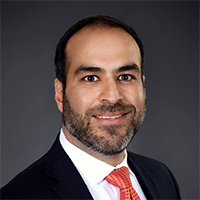Ted Cruz | Attorney
Top Local Lawyers
 Premium
Premium
Kay J. Hamilton
Hamilton Legal Services, PLLC
Estate,
700 Milam Street
Houston, TX 77002
 Premium
Premium
Kirk George Smith
Shepherd, Smith, Edwards & Kantas, LLP
Lawsuit & Dispute,
1010 Lamar St. Ste. 900
Houston, TX 77002
 Premium
Premium
John Cucci
John Cucci Attorney at Law
Criminal, Accident & Injury, Real Estate, Car Accident,
440 Louisiana Street Suite 660
Houston, TX 77002
 Premium
Premium
Charles August Banker
Law Offices of Charles A. Banker, III
Criminal, DUI-DWI, Felony, Juvenile Law,
405 Main St. Ste. 910
Houston, TX 77002
 Premium
Premium
Hunter Hays Simmons
The Simmons Law Firm PLLC
Criminal, Divorce & Family Law, Accident & Injury,
917 Franklin St. Commercial Bank Bldg., 4Th Floor
Houston, TX 77002
 Premium
Premium
Robert R. Jones
Law Office of Robert Jones -- Emancipation Park
Criminal, Divorce & Family Law, Tax, Real Estate, Lawsuit & Dispute
2411 Emancipation Ave Suite 202
Houston, TX 77004
 Premium
Premium
Brett Michael Hill
Gibson Hill Personal Injury
Accident & Injury, Personal Injury, Business & Trade, Consumer Bankruptcy,
636 Hawthorne St.
Houston, TX 77006
 Premium
Premium
Ty Alexander Gibson
Gibson Hill Personal Injury
Accident & Injury, Personal Injury, Car Accident, Premises Liability, Wrongful Death
636 Hawthorne St
Houston, TX 77006
 Premium
Premium
Kenneth Allan Krohn
Krohn PLLC
Estate, Estate Planning, Wills & Probate,
1210 W. Clay Street Suite 12
Houston, TX 77019
About Ted
Cruz was born in Canada and relocated to Texas with his family in the 1970s. There, he attended private high schools – the Faith West Academy and Second Baptist High School in Houston.
Showing an interest in politics, Cruz graduated from Princeton University with a BA in Public Policy in 1992. He won numerous Princeton debate competitions and speaking awards. Cruz continued on to attend Harvard Law School, where he graduated magna cum laude with a JD in 1995. He served as the editor of the Harvard Law Review and executive editor of the Harvard Journal of Law and Public Policy. Cruz also helped found the school's first Latin American journal, titled Harvard Latino Law Review.
Following graduation, Cruz completed several clerkships. In 1995, he clerked for J. Michael Luttig of the US Court of Appeals for the Fourth Circuit. The following year, he was a law clerk for William Rehnquist, the Chief Justice of the United States.
Cruz transitioned to private practice in 1997, and worked for Cooper, Carvin & Rosenthal until 1998. At the firm, he worked on matters of the National Rifle Association and aided in the impeachment proceedings of former president Bill Clinton. He also represented Congressman John Boehner in litigation against fellow Congressman Jim McDermott.
Prior to the 2000 presidential elections, Cruz entered the political arena as a domestic policy adviser for George W. Bush. He created Bush's legal team and focused on creating strategies and drafting pleadings to file with the Supreme Court of Florida and the US Supreme Court in the case of Bush v. Gore. Following Bush's presidential victory, Cruz became the associate deputy attorney general in the US Justice Department. He was also the directory of policy planning at the US Federal Trade Commission.
In 2003, Texas Attorney General Greg Abbott appointed Cruz the Solicitor General of Texas. Cruz won five out of nine cases argued before the Supreme Court and authored 70 US Supreme Court briefs during his tenure as Attorney General. Cruz drafted an amicus brief, supported by 31 attorneys general, in District of Columbia v. Heller, declaring a Washington, D.C. handgun ban unconstitutional. Cruz was the Solicitor General for five years before returning once again to private practice.
After leaving the position of Solicitor General, Cruz joined the Houston-based law firm Morgan, Lewis & Bockius LLP, where he primarily represented corporate clients. A major client was Pfizer, which Cruz defended in a lawsuit brought by various organizations accusing the pharmaceutical giant of overcharging. He also headed the firm's US Supreme Court and national appellate litigation matters.
Cruz transitioned to politics again in 2012, when he won a victory in the Republican primary for the US Senate election. He created and sponsored 25 of his own bills in office, including S.177, a bill to repeal the Patient Protection and Affordable Care Act, bills to investigate and prosecute felons and fugitives who illegally purchase firearms, and S.2170, a bill approving construction of the Keystone XL Pipeline. Cruz played a role in the government shutdown of 2013, and he introduced a Senate bill in 2014 prohibiting any UN ambassadors involved in espionage or terrorist activities from obtaining US visas.
Cruz continued his path in politics into 2016, when he joined the race for US president as a Republican hopeful. He won primaries in 12 states, but ultimately dropped out of the race after losing the Indiana primary to fellow Republican candidate Donald Trump in May 2016.
Education
Harvard Law School
JD
1995
Recognitions & Achievements
 Honors / Awards
Honors / Awards
-
: Top Speaker Award US National Debating Championship and North American Debating Championship1992
-
: Named US National Speaker of the Year; Team of the Year by American Parliamentary Debate Association with partner David Panton1992
-
: Reed Harvard Law School at the World Debating Championships1995 / present / 1995
-
: Statesman of the Year2014






